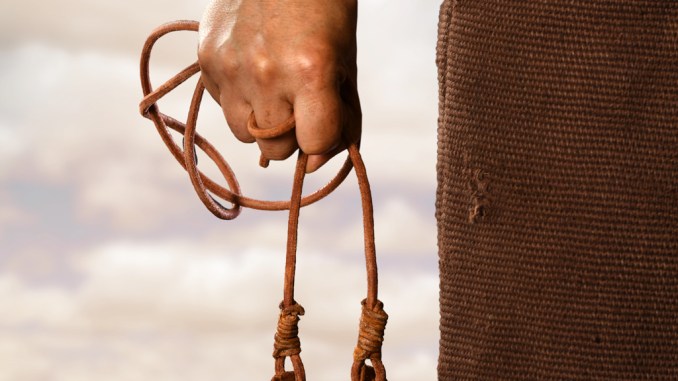
“And David took [the armor] off”
1 Samuel 17:39b
David was ready to fight the seemingly overpowering giant Goliath. King Saul wanted to equip him in the best possible way for this battle, so he gave him his armor.
Yet we read that David discarded it completely. Wasn’t it completely understandable that Saul would at least want to equip David with the best possible equipment, given his physical inferiority in battle? How dare David entirely discard these aids?
David had several reasons for this:
1. His experiences with God
1 Samuel 17:39 (NIV): “‘I cannot go in these,’ he said to Saul, ‘because I am not used to them.’”
Just as understandable as Saul’s attempt to help David with his armor, so is David’s response to it. It was simply too heavy for him. As a shepherd, he had no practice at all going into battle with such equipment. But wasn’t the impending battle also a completely new experience for David, and don’t we always try to face impending dangers as best we can, protected and equipped? Although it may seem so, David by no means went into battle naïve. He was not used to fighting in war armor, but as a shepherd in battle with wild animals, he was used to standing protectively in front of his flock and winning victories. He thus experienced God in everyday life. He knew that he did not have to rely on his own strength, but that he could rely on his God.
2. His fearlessness before the enemy
1 Samuel 17: 26b, 36b: “For who is this uncircumcised Philistine, that he should defy the armies of the living God?…[He] will be like one of them, seeing he has defied the armies of the living God.”
David had a very different view of the enemy than the many men in the army. He neither froze in awe nor showed any fear. Didn’t he, of all men, have every reason to fear, since he had neither been trained to fight nor had any experience in the battlefield? What was the difference between David and the trained warriors? He saw the enemy from God’s perspective. Goliath was not only the enemy of Israel, but he was the enemy of God. Therefore, he was no more dangerous to David than the wild beasts with which he had already had experience in battle. To David, Goliath was not the biggest and best equipped fighter, but God’s enemy. This God was alive to David, so David had full assurance of victory: “The Lord, who delivered me from the paw of the lion and from the paw of the bear, He will deliver me from the hand of this Philistine” (verse 37). David knew God and had experienced Him in his daily life, so he knew that whoever mocks God’s people, God will not let him go unpunished. God is on the side of His people.
3. His trust in God
1 Samuel 17:47: “Then all this assembly shall know that the Lord does not save with sword and spear; for the battle is the Lord’s.”
Before the battle comes, David makes it clear that his point is not to show off his skill by gaining a victory, but rather for God to glorify Himself. Everyone should see that God alone gives victory to those who trust in Him. David knew that Goliath was the enemy of God, Israel was the people of God, and the battle was therefore the Lord’s. He was willing to put himself into God’s service and be used by Him. He then did not need the best human weapons for victory. He fought with seemingly hopelessly inferior equipment, but in reality he was well equipped, because he had complete trust in the living God.
We, too, may have daily experiences with our God that teach us to trust Him more and more and then to go fearlessly into battle in the strength of our Lord. For “in all these things we are more than conquerors through Him who loved us” (Romans 8:37). Victory is ready for us as well. We may have the assurance of victory in the various temptations and attacks of the enemy, like David, if we go into battle with faith and trust in God. “For whatever is born of God overcomes the world. And this is the victory that has overcome the world – our faith” (1 John 5:4). In this, we do not have to trust in our own strength. Rather, we need to be aware of our human weakness so as not to enter the battle in self-assurance and be defeated. We may experience, like Paul: “And He said to me, ‘My grace is sufficient for you, for My strength is made perfect in weakness.’ Therefore most gladly I will rather boast in my infirmities, that the power of Christ may rest upon me” (2 Corinthians 12:9). We will not be spared struggles in our lives, but Jesus promised us, “In the world you will have tribulation; but be of good cheer, I have overcome the world” (John 16:33b)! If we live by the power of Christ, we may, like David, go into battle confident of victory so that God may come to glory in our lives.
Willi Tege
Eppingen, Germany




Be the first to comment